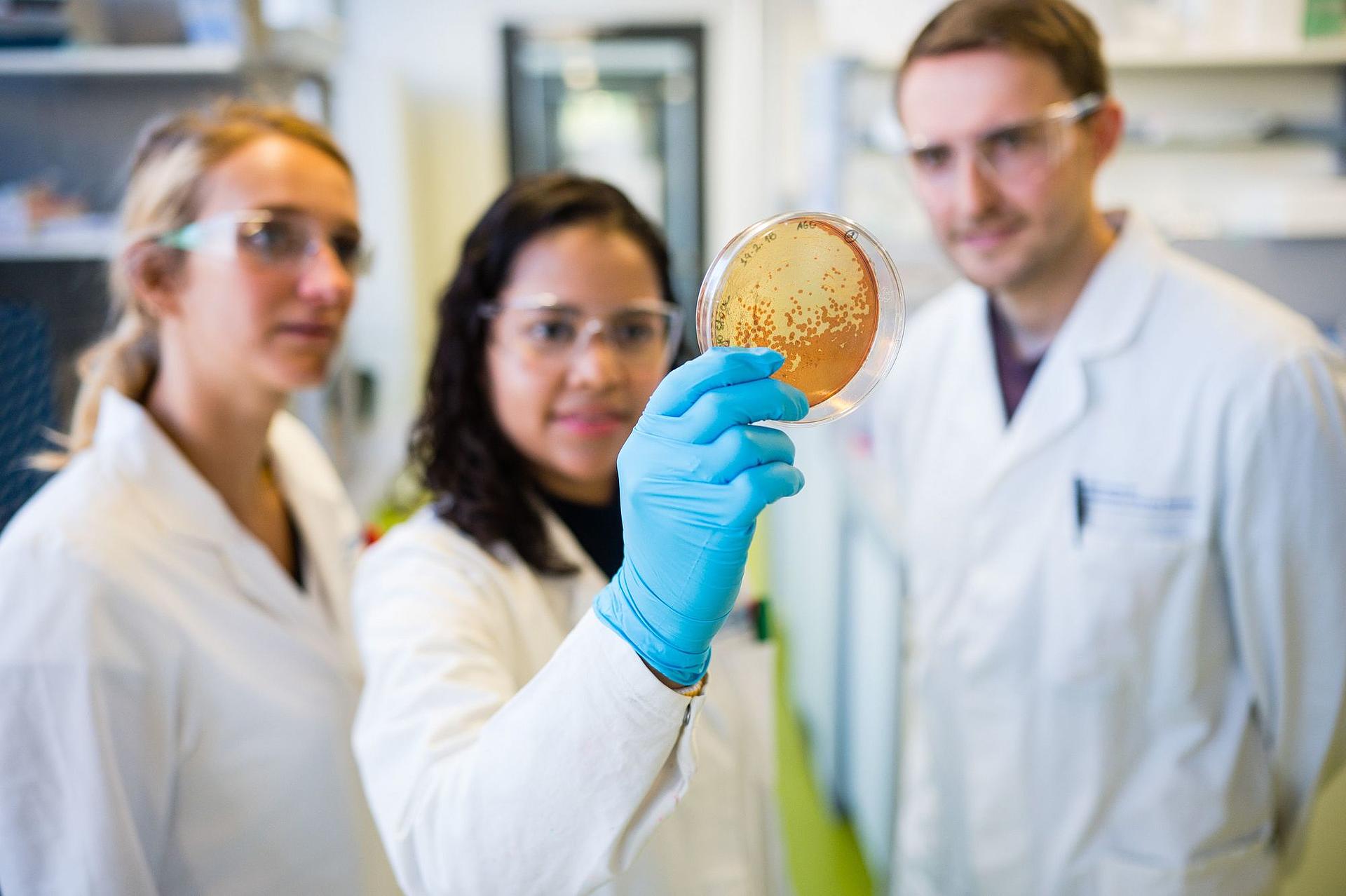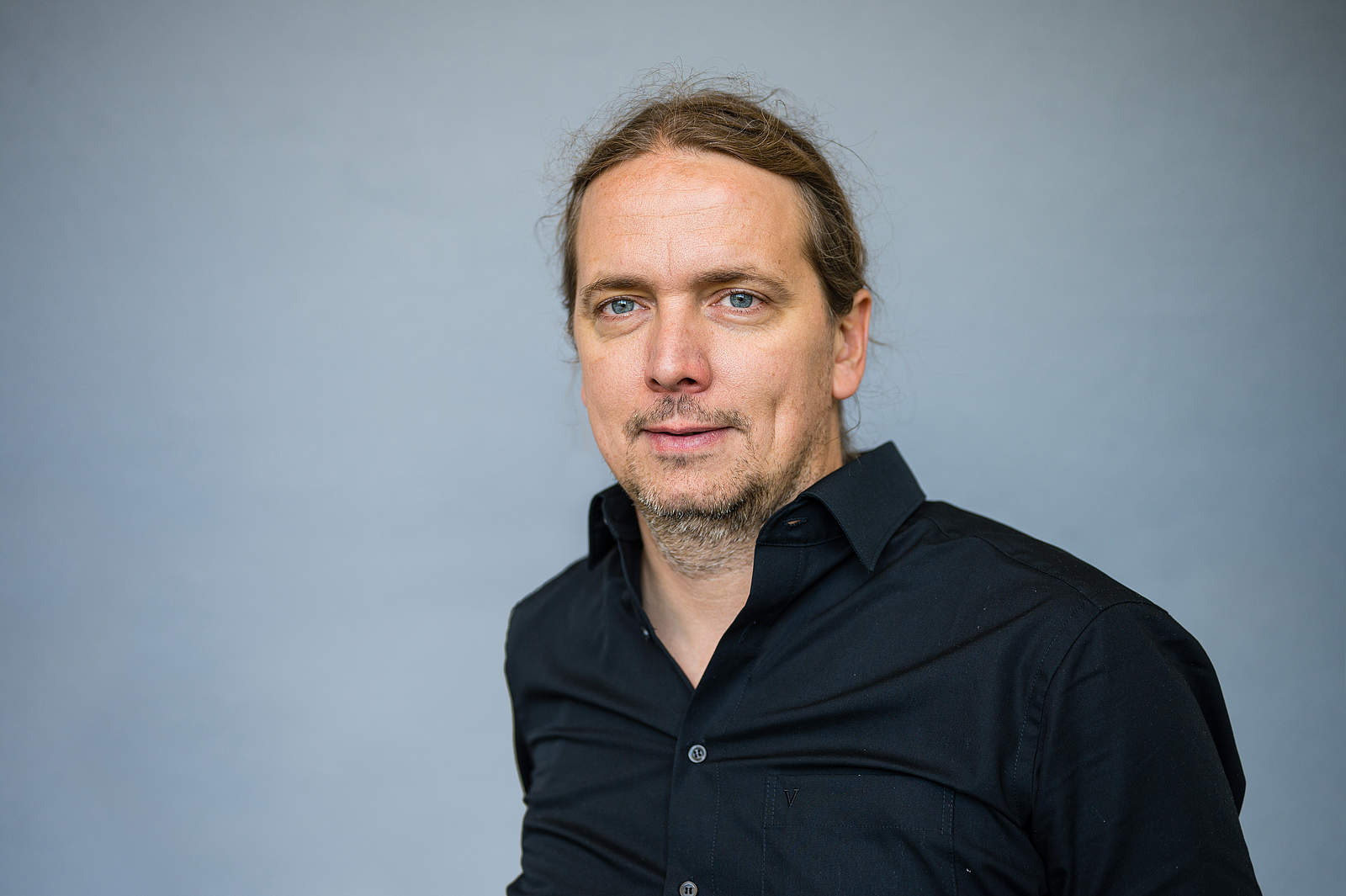In the “Pharmaceutical Research Saarland” alliance, Saarland University, the Helmholtz Institute for Pharmaceutical Research Saarland (HIPS) and the Leibniz Institute for New Materials (INM) have been pooling their interests in research, teaching, and the promotion of young researchers since 2019.
The research alliance combines the subject areas of pharmacy, medicine, informatics and materials science, thereby enabling the participating scientists to create synergies at the Saarbrücken/Homburg location and to work on joint research topics in the field of pharmaceutical research.
The field of nano- and life sciences is already one of the top research areas in Saarland. The aim of the new interdisciplinary cooperation in biomedical-pharmaceutical drug research is to network this area even more closely with clinical medicine, (bio)informatics and biologically inspired materials research and, among other things, to specifically promote joint research projects in the field of therapeutic modelling and modulation of cellular signals in infections.
The joint research projects are complemented by strategic measures to strengthen interaction at the site and to jointly recruit highly qualified scientists in the field of pharmaceutical research.
TANDEM Projects
In the bi- or trilateral TANDEM projects, scientists from HIPS, INM and Saarland University conduct research with the participation of the Faculty of Medicine, the Faculty of Mathematics and Computer Science, the Faculty of Science and Technology and the Centre for Bioinformatics. Since the alliance began, 19 projects have been approved. Among others, these include:
![Logo NextAID - Neuroexplicit AI for Drug Discovery [Translate to englisch:] Logo des Tandem-Projekts NextAID](/fileadmin/upload/forschen/pharmazeutische-forschungsallianz/NextAID.png)
NextAID – Neuro-explicit AI for Drug Discovery
The TANDEM project NextAID was launched in 2022 as part of the Research Alliance at Saarland University with the aim of combining the expertise of the Saarland Informatics Campus (SIC) with the Helmholtz Institute for Pharmaceutical Research Saarland (HIPS). The novel interdisciplinary collaboration integrates pharmaceutical research with the latest advances in machine learning.
The goal is to apply state-of-the-art machine learning methods to accelerate drug screening, make in silico predictions about the pharmacokinetic properties and toxicity of drug candidates, improve the efficacy and effectiveness of drugs and develop new drug candidates.
IMAGINE - Identification of microbial antibiotics to protect the physiologic microbiota at body surfaces
The IMAGINE initiative is a joint research project of HIPS, Saarland University and Homburg University Hospital. The aim of the project is to develop antibiotic treatments that are tailored to the microbiome of the respective patient. Against this background, the TANDEM project, which was initiated in 2020, is concerned with characterising, maintaining and strengthening the commensal microbiota.
Conventional antibiotic therapy usually has a non-specific effect and attacks not only pathogens but also a large part of the commensal microbiota, which can lead to side effects and long-term consequences that are difficult to predict. The aim of this project is to identify drug candidates from microorganisms that minimise these side effects by analysing clinical and metagenomic data.

Graduate schools for Pharmaceutical Research
With its two graduate schools, the Pharmaceutical Research Alliance offers ideal training conditions for doctoral students.
The interdisciplinary Graduate School of the Research Alliance offers the doctoral students of the TANDEM projects a unique opportunity to expand their knowledge and establish interdisciplinary contacts. To this end, the participants take part in a series of complementary interdisciplinary courses. They also regularly discuss their research results at TANDEM workshops and retreats. Furthermore, the graduate school enables them to participate in international conferences and advanced training events.
TALENTS, the EU-funded “Training AlliancE for Novel Microbiome-Modulating Therapies”, is aimed at international young scientists. Starting in 2023, it will link pharmaceutical and scientific research with medical research and bioinformatics. The focus is on the human microbiome, i.e. the totality of bacteria that colonize humans. In addition to smaller and larger pharmaceutical companies from Germany and the region, clinics, government agencies and international partners from Europe also work with TALENTS. Internships in these companies provide the 15 international doctoral students with practical insights.

Gemeinsame Berufungen
2020 wurde Prof. Dr. Alexander Titz auf die W2-Professur für Organische und Pharmazeutische Chemie an der Universität des Saarlandes berufen. Die Professur wird als Teil der Forschungsallianz gemeinsam von UdS und HIPS getragen und schlägt eine Brücke zwischen den Fachrichtungen Chemie, Pharmazie und der Medizinischen Fakultät sowie der außeruniversitären Forschung am HIPS.

Leibniz Science Campus „Living Therapeutic Materials“
Leibniz ScienceCampuses enable Leibniz institutions and universities to cooperate on specific topics in the sense of a regional partnership.
Since 2020, research has been conducted as part of the Saarbrücken ScienceCampus “Living Therapeutic Materials” to produce materials in which bacteria produce active substances that can be released into the human body in a controlled manner over a long period of time if required.
The Research Alliance supports the activities of the ScienceCampus.


